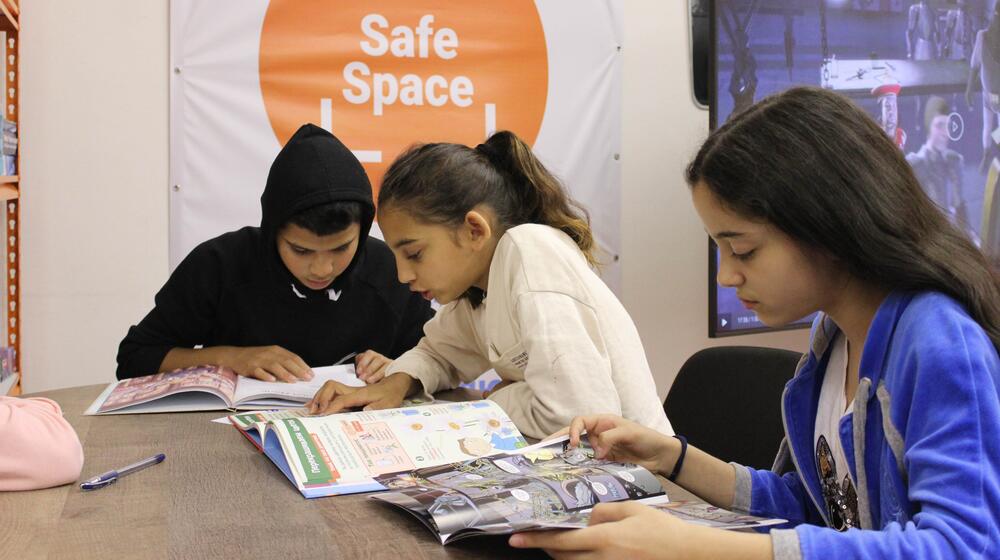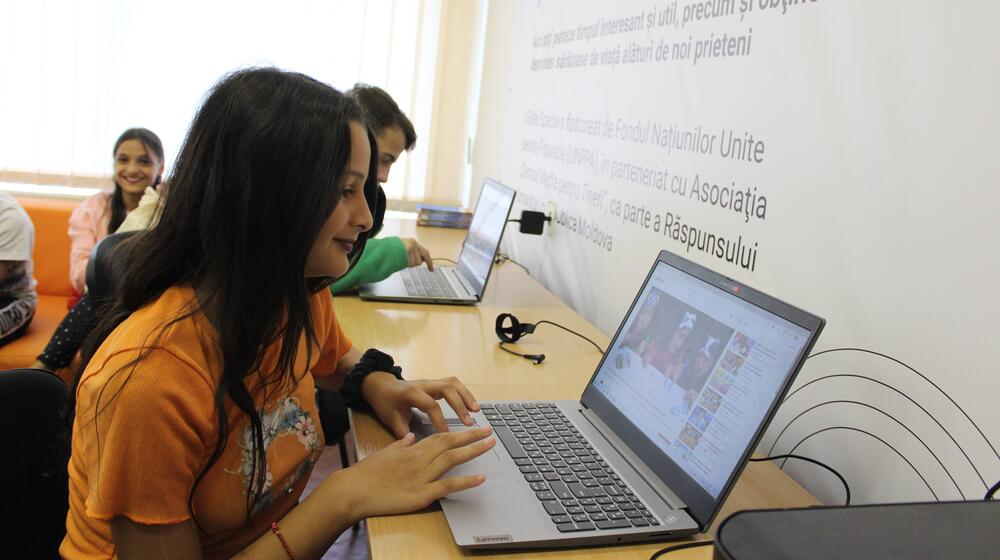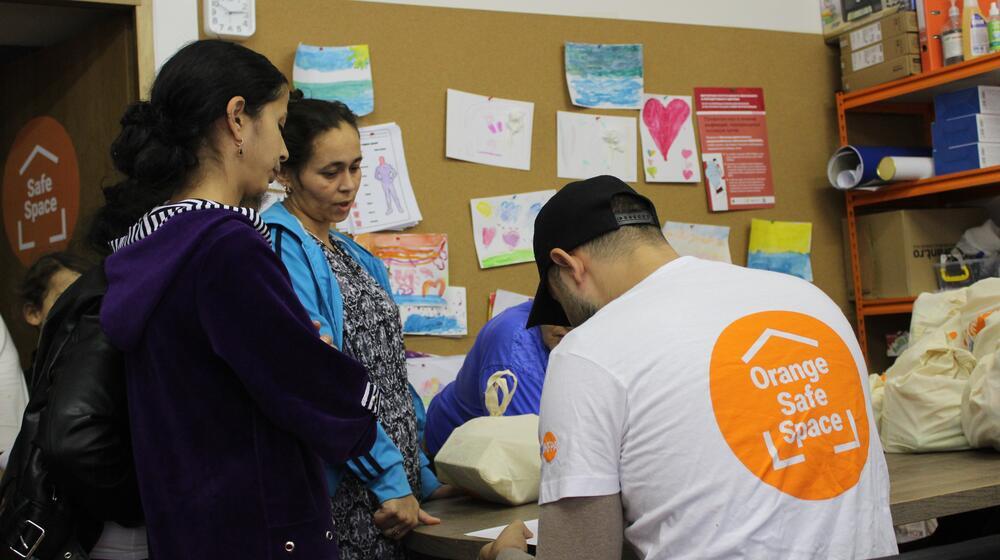CHIȘINĂU, the Republic of Moldova – “Services of this kind have not been practised among this group of Roma population in Ukraine, so due to a lack of information, there is distrust,” said Sahin Rădiță. “Sexuality education is taboo for them.”
Mr. Rădiță is a coordinator at a safe space run by UNFPA, the United Nations sexual and reproductive health agency, in Chișinău, the capital of the Republic of Moldova. Every day, the safe space supports up to 50 Roma youths who have fled ongoing violence in Ukraine following Russia’s full-scale invasion over a year ago.
Mr. Rădiță said the facility manages to strike a balance between the need for sexual and reproductive health information and respecting Roma norms and values. “Our services are welcome, even necessary,” he said. “But they require a specific approach, taking into account Roma culture and customs.”
Around the globe, stigma often surrounds sexuality education. The results of societies’ reticence can be dangerous: Complications from pregnancy, for instance, are a leading cause of death for adolescents in many countries.
Research shows comprehensive sexuality education can help prevent adolescent pregnancies, reduce risky behaviours and combat gender norms that put girls at risk of violations such as child, early and forced marriage. But cultural factors can complicate how these topics are taught.

To counter harmful norms, be culturally relevant
Europe’s Roma ethnic minority encompasses a population of 10 to 12 million people living across more than a dozen countries. Although incredibly diverse, the community is united in facing a major issue across society: Social, economic and political marginalization.
Roma communities are subject to widespread inequality when it comes to employment and housing opportunities. A 2021 survey of Roma across ten European countries found that four in five Roma people were at risk of poverty and fewer than half of Roma children were enrolled in early education.
Meanwhile, within the community, women and girls often confront norms that perpetuate gender inequality. As an activist for a Roma advocacy organization in Ukraine told UNFPA: “The woman knows her place. She [is the] mother, the homemaker. All the important issues are decided by a man.”
Across several countries, Roma women and girls are disproportionately likely to become wives as children and mothers as teenagers. And reports show that as many as one quarter of Roma refugee children from Ukraine may not be able to read.
It’s issues like these that UNFPA works to address around the world through culturally sensitive programming. For example, the programme in Chișinău separates girls and boys for most courses, but they are mixed when playing interactive games such as a board game called “Without Taboo”, developed by UNFPA.
But before these interventions make any impact, community buy-in must be built.
“The challenge was to establish a stable, trust-based dialogue so that parents would allow their children to visit the safe space and participate in the activities – which I was able to do,” said Mr. Rădiță, who is Roma himself.
Parents are informed of the content and projected benefits, such as reducing teenage pregnancies and gender-based violence, before their children have even enrolled on the programme. And for many sessions, the parents themselves are invited to participate, helping to build trust among the community – which is particularly important for programmes aimed at younger girls.

Continuing education
The Chișinău safe space aims to address refugees’ urgent needs, such as by providing gender-based violence referral services, facilitating access to contraception, including urgent contraception, and providing critical hygiene and menstrual supplies.
But it is also a place to build a sense of community – for young people to watch movies, play sport and make art while fortifying their mental, physical and sexual and reproductive health.
With approval from their guardians, youths aged 12 and up can participate in comprehensive sexuality education courses. “At the beginning, not only the parents but also the young people were sceptical about the activities we carried out,” said Mr. Rădiță.
“But once they saw the effect of these activities, we obtained a stable attendance of the young people and the full trust of their parents.”
Increased awareness and more respectful behaviour among the young participants are encouraging more Roma parents to get involved. Mr. Rădiță said the adolescents feel they are in a safe space where they can ask for and receive information, services and contraception in full confidentiality.
Meanwhile, UNFPA is partnering with other UN agencies to pave the way for Roma youth to pursue their education – a meaningful step, as many of the adolescents served at the safe space have never attended school.
“We managed to enrol into school 12 young Roma refugees, and these are just some of the results that we achieved,” said Mr. Rădiță.


